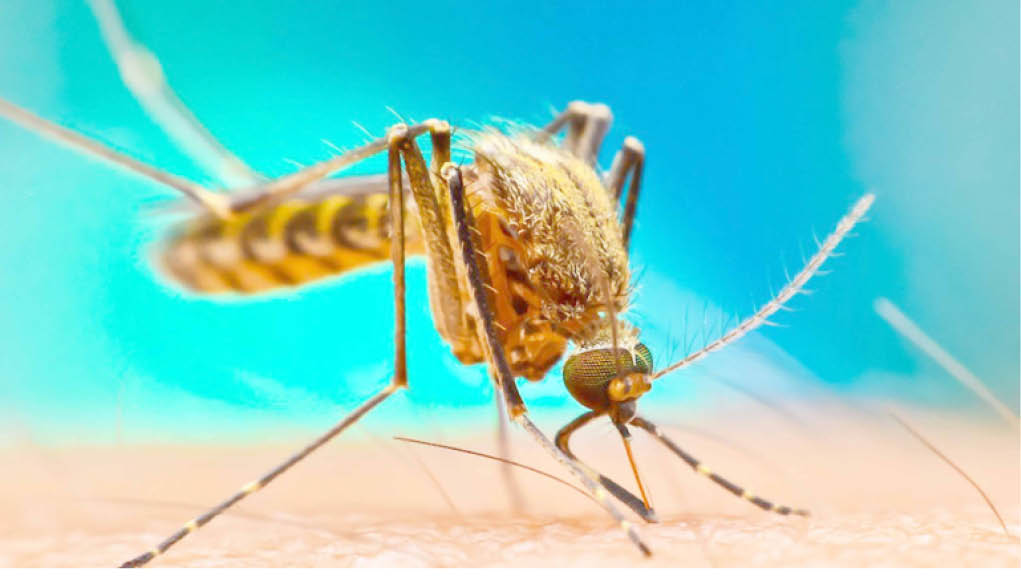[ad_1]
Africa bears an excessively high share of the global malaria burden, with the World Health Organisation (WHO) African Region accounting for 94% of cases and 95% of deaths in 2023. Specifically, there were an estimated 246 million malaria cases and 569,000 deaths within the region. A little over half of the deaths occurred in four countries. They are Nigeria, the Democratic Republic of Congo, Niger and the United Republic of Tanzania.
Although Nigeria has made advancements in its fight against malaria, it has consistently held the highest global burden of malaria for many years. According to the World Malaria Report, this burden accounted for 27% of global malaria cases and 31% of malaria-related deaths in 2023. Particularly vulnerable to malaria infection and complications are children under five and pregnant women.
Antimalarial drugs are medications used to treat and prevent malaria infections, caused by parasites of the Plasmodium genus. These drugs target different stages of the parasite’s life cycle in the human body, thus preventing them from multiplying and spreading. Drug resistance, however, makes malaria treatment more difficult and costly. This potentially leads to increased illness and mortality. Sadly, malaria drug resistance is said to be a serious concern in Nigeria. Studies show high prevalence rates for specific mutations in certain regions.
SPONSOR AD
Now, antimalarial drug resistance occurs when malaria parasites transform in a way that makes them less susceptible to the drugs designed to kill them. This can be due to a number of reasons.
Like all living organisms, malaria parasites can naturally undergo mutations (changes in their DNA). Some of these mutations can make the parasites more resistant to certain drugs. The resistant parasites are more likely to survive and reproduce if the parasite mutations occur when they are exposed to an antimalarial drug. This will lead to a population of resistant malaria parasites.
Taking a lower dose than prescribed or not completing the full course of antimalarial medication can allow resistant parasites to survive and multiply. Also, not following the recommended treatment protocols (for example, taking the medication at the right times and with the right amount of food) can lead to incomplete drug exposure and selection of resistant parasites.
Counterfeit or low-quality antimalarials may contain the wrong dosage or no active ingredient at all. This leads to ineffective treatment and allows resistant parasites to survive.
Prolonged use of antimalarials for prevention, even if not necessary, can equally increase the selection pressure for resistant malaria parasites.
A high number of malaria parasites in the bloodstream can also increase the chances of mutations occurring and resistant parasites showing up. Malaria parasites can similarly develop resistance to various antimalarial drugs, making treatment more difficult.
Furthermore, improper storage conditions can degrade an antimalarial drug’s effectiveness, and this can lead to inadequate treatment and contribute to drug resistance. In addition, populations that are migrating can introduce resistant parasites into areas where drug resistance is not yet recognised.
The poorly administered and unregulated use of antimalarial drugs, especially in areas where there is limited access to healthcare, can also contribute to resistance. Misconceptions about malaria and the high costs of treatment are common drivers of self-medication, which sometimes complicates the problem of antimalarial drug resistance.
A study by Imperial College London estimates that widespread resistance to antimalarials could result in 16 million additional cases each year in Nigeria. Patients with drug-resistant malaria may require longer hospital stays due to the complexity of treatment and the potential for complications, according to a study at the Cleveland Clinic. Treating drug-resistant malaria requires more expensive and potentially more complicated treatment regimens. This can strain healthcare resources.
The truth is that we all have a role to play in combating antimalarial drug resistance. When experiencing malaria symptoms, it is crucial to seek immediate medical care to receive appropriate treatment and prevent the spread of resistant parasites. We also need to ensure that we take the prescribed antimalarial medication for the entire duration, even if we feel better.
Insufficient dosages can lead to incomplete treatment and increase the likelihood of resistance developing. So, we must adhere to the specific dosage and timing instructions provided by healthcare professionals.
Furthermore, we should endeavour to use insecticide-treated bed nets (ITNs) as they can be an effective barrier against mosquito bites and can significantly reduce malaria transmission. The use of repellents containing DEET or picaridin is similarly encouraged, as they can effectively deter mosquitoes. Wearing long sleeves and pants, especially during peak mosquito activity hours, can equally help prevent bites.
It is also important to empty standing water sources, such as buckets, flowerpots, and tyres, to prevent mosquitoes from breeding. In addition, we can participate in community efforts to control mosquito populations, such as spraying insecticides or clearing vegetation around homes.
We can also educate family, friends, and neighbours about malaria prevention and the importance of completing antimalarial treatments.
The fight against antimalarial drug resistance must begin in our homes and communities. Ensuring full adherence to prescribed treatment regimens, participating in local mosquito control initiatives, and raising awareness about the dangers of incomplete medication are crucial first lines of defence. Let us individually own the fight against antimalarial drug resistance, as every individual action contributes to the larger solution.
Ojenagbon, a health communication expert and certified management trainer and consultant, lives in Lagos.
Do you want to share a story with us? Do you want to advertise with us? Do you need publicity for a product, service, or event? Contact us on WhatsApp +2348183319097 Email: platformtimes@gmail.com
We are committed to impactful investigative journalism for human interest and social justice. Your donation will help us tell more stories. Kindly donate any amount HERE




